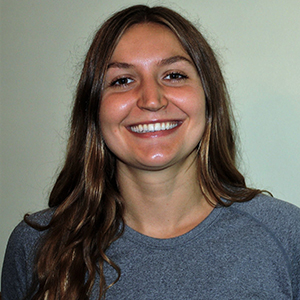Feature: Student initiative reaches out to seniors in isolation
 By Alexandra Burza, MMJC'19
By Alexandra Burza, MMJC'19
A swift change from the fast-paced and exciting environment of medical school to her family home in Toronto left Erika Haberfellner, Medicine Class of 2021, searching for ways to volunteer her time during COVID-19 restrictions this past spring.
While browsing a list of volunteer initiatives for medical students, the Student Senior Isolation Prevention Partnership (SSIPP) stood out to her. At a time where some degree of social seclusion became a ubiquitous shared experience, she recognized an opportunity to share in that experience with an older adult.
“Senior isolation is a big problem in general, but particularly during the pandemic,” said Haberfellner, a student at the Schulich Medicine – Windsor Campus.
“We talk on the phone, usually once a week. The idea is to form a bond, a positive relationship, with someone older; not as their physician, but as a friend.”
The SSIPP initiative, founded at the University of Toronto, pairs medical students with older adults at risk of social exclusion. The program experienced a large uptake in both volunteers and participants as a result of the pandemic, encouraging SSIPP to expand to more Canadian universities. When Haberfellner approached the organization with the intent to volunteer, she was recruited to help lead the newly established Windsor chapter.
“We have about 50 matched pairs of students and seniors. In terms of the students, there has been a huge interest in volunteering, so we definitely want to match that on the referral side,” she said.
Currently, Haberfellner connects with local physicians who recommend a list of patients who might benefit from SSIPP.
“It’s easy for us to get in touch with physicians, and we also like the idea of having someone to reach out to if the volunteer has any concerns about the individual’s health,” she explained,
She says participating physicians have been eager about the initiative, seeing this as an opportunity for medical students to learn about and combat ageism in medicine.
As the program heads into its first year in Windsor, Haberfellner says she couldn’t imagine spearheading this initiative on any other campus. She explains she wouldn’t usually be the type to know every classmate or faculty member, but the size and closeness of the Windsor Campus community makes it easier to spread awareness of the program.
For Haberfellner, meeting and connecting with patients have been the most rewarding experiences of medical school.
“I’m really enjoying clerkship. People are infinitely interesting once you get to know them. Every medical specialty is interesting because people never fail being worth getting to know.”








